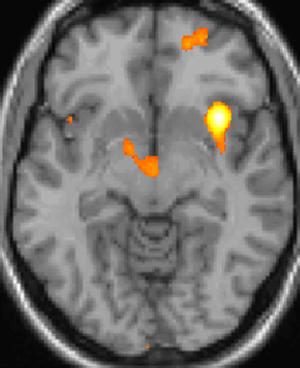WKMCBLAW.COM Presents: Case Update, October 7, 2016
Washington High Court: Self-Insurers May Recoup Overpayments, Within One Year, Regardless of Whether the Underlying Order was Temporary or Binding.
October 7, 2016
By Lawrence Mann, Samrach Sar

In Birrueta v. Department of Labor and Industries, the Supreme Court of Washington issued a decision holding that Self-Insurered Employers may recoup overpayments, within one year, even though an order setting an injured worker’s industrial insurance benefits had become final, under RCW 51.32.240(1)(a).
Background
The injured worker sustained injuries at work, and was totally disabled by his injury. The report of his industrial injury stated that the injured worker was married with one child, when in fact at the time of his injury, the injured worker was unmarried and had no children. Between 2004 and 2008, the Department issued multiple compensation orders, each of which maintained the misrepresentation of his marital status. The last of these orders “became final on or about May 4, 2009.” The injured worker raised several challenges to the Department’s orders over the years, but never attempted to correct the Department’s mistaken belief that he was married at the time of his injury. Subsequently, the Department determined that the injured worker was permanently and totally disabled and thus entitled to a pension. At this juncture, the injured worker filled out the required pension benefits questionnaire, accurately stating that he was unmarried at the time of injury. After the Department of Labor and Industries (Department) learned it had been overpaying the injured worker industrial insurance benefits for years, it issued two orders, one assessing an overpayment and another changing the injured worker’s status from married to unmarried for compensation purposes.
The Court held that orders assessing overpayment are timely, when it is made within one year of the payments it sought to recoup, and were statutorily authorized, because the overpayments were due solely to an innocent misrepresentation about the worker’s marital status that was made on the injured worker’s behalf, not by adjudicator error. The Court held that subsection (1)(a) applies to any order, temporary or binding, that results in an erroneous overpayment of benefits caused by an innocent misrepresentation, while subsection (1)(b) applies only to overpayments caused by “adjudicator error.”
Impact
This decision maintains what the legislature intended for RCW 51.32.240 as a whole; and provides the framework for the Department to seek correction of erroneous payments based on clerical errors, mistakes of identity, and innocent misrepresentations within one year of the payment.
Washington Court of Appeals: Departs from the Price Rule–Post-Concussive Injuries Do Not Require Objective Medical Evidence for Claim Reopening.
October 7, 2016
By Lawrence Man, Samrach Sar
In Reymundo Felipe v. Department of Labor and Industries, the Court of Appeals of the State of Washington issued a decision holding that the “objective findings requirement” does not apply to reopening applications for post-concussive head injuries.

Background
The injured worker suffered a closed head injury when he fell off a ladder at work. He developed symptoms consistent with post-concussive syndrome and depression. The Department allowed the claim and provided benefits to the injured worker. The injured worker’s symptoms improved with medical treatment and the Department, in due course, closed his claim.
Approximately one year after claim closure, the injured worker sought treatment for newly developed headaches. The injured worker’s primary care provider diagnosed a traumatic brain injury, secondary to his original industrial injury. The injured worker filed a reopening application, which the Department denied based on an IME from neurologist, Dr. William Stump.
The injured worker appealed to the Board of Industrial Insurance Appeals (Board). The Board received each party’s medical testimony through deposition. The injured worker’s primary care provider testified the industrial injury worsened based on subjective complaints and MRI findings that “showed evidence that patient may have had a hemorrhage in the brain.” Dr. Stump testified that there was no objective evidence of worsening since claim closure. Dr. Stump disagreed that the MRI report showed that the injured worker suffered from a hemorrhage. The Board affirmed the Departments order, and the injured worker appealed to the Court of Appeals. The Court explained the “objective findings” rule that was derived from Price, and does not apply when the symptoms of a condition are exclusively subjective in nature.
Impact
This decision distinguishes it from the Courts holding in Price; and delineates the separation between physical disability and injuries that are subjective in nature, in this case post-concussion syndrome, for applications for reopening due to worsening.